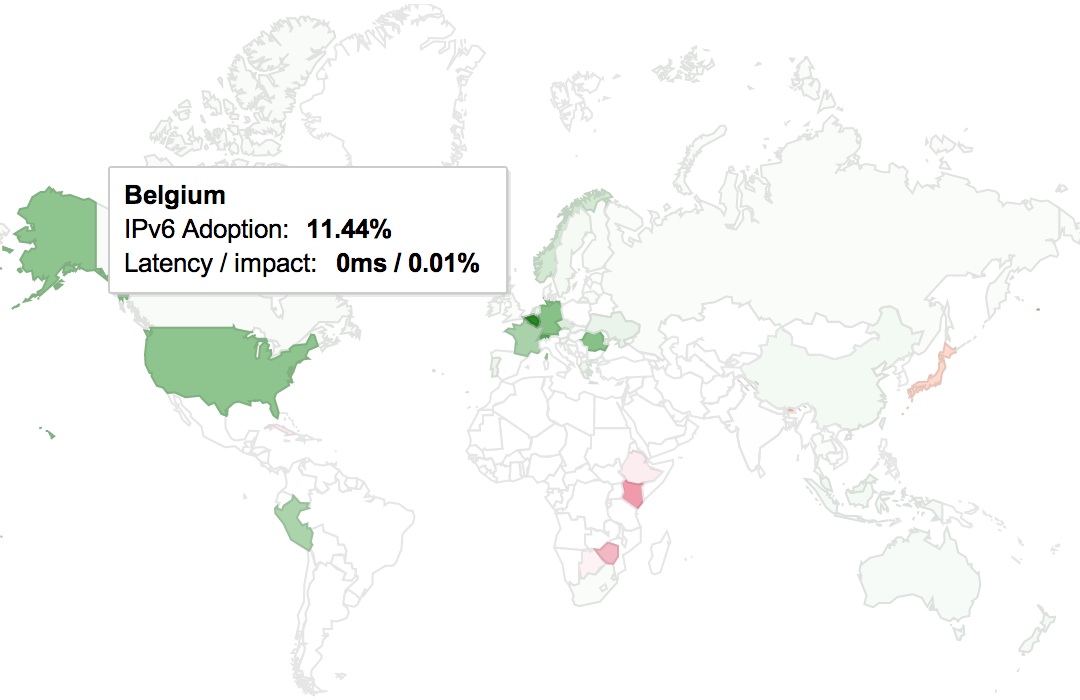When do we turn off IPv4?
▼ Over on gogo6.com (through the .vantronix newsletter) Bruce Sinclair asks and attempts to answer the question When do we Turn Off the Lights on IPv4? They actually did a poll on gogoNET. The answers form a beautiful bell curve with roughly the following answers:
| < 3 years: | 15% |
| 3-5 years: | 18% |
| 5-10 years: | 28% |
| 10-15 years: | 19% |
| > 15 years: | 17% |
I've often heard "we're going to be running IPv4 for a looong time..." I don't think we will. The 5-10 years options sounds about right to me. Currently, you can't really turn off IPv4, because you lose access to most of the internet. Sure, we can reach Google, Youtube, Yahoo, Facebook, Bing, Wikipedia and now also Apple as well as thousands of other sites over IPv6, but not Twitter, Ars Technica, de Volkskrant, Microsoft and millions more.
World IPv6 Day and World IPv6 Launch helped a lot to get a good number of top 100 web sites as well as a small percentage of the less popular ones on IPv6. Before and since, it's been slow going. But as it gets harder and harder to get good IPv4, at some point people will start to decide that they can get by—some of the time, at least—with just IPv6. This will trigger additional IPv6 adoption on the content side, and then additional IPv6-only use on the consumer side, and finally we'll have a virtuous circle.
The current assumption that everyone who is "on" the internet has IPv4 will then no longer hold. But not everyone will have IPv6, either. Obviously this will be problematic, and IPv4-only users will add IPv6 just as dual stack (IPv4+IPv6) users will drop IPv4.
Obviously IPv4 will not really go away anytime soon; legacy technologies are hard to kill. But once 80 or 90 or 95 % of all internet users are on IPv6, why keep spending money running IPv4? Once we're at this stage, IPv4 will start disappearing from many places very quickly, similar to what happened to SNA, IPX, AppleTalk and the like around the late 1990s. Except that it's going to be faster because by that time, almost all applications will already use APIs that support IPv6, so it's just an infrastructure change, not a software change.
But maybe we shouldn't throw away good old IPv4 too quickly. More on that later.
Oh, did I mention I posted this article from a computer that's not running IPv4 currently? I turn off IPv4 on my Mac once or twice a year to see what does and doesn't work with just IPv6 connectivity. It's getting better all the time.
Permalink - posted 2013-08-21

